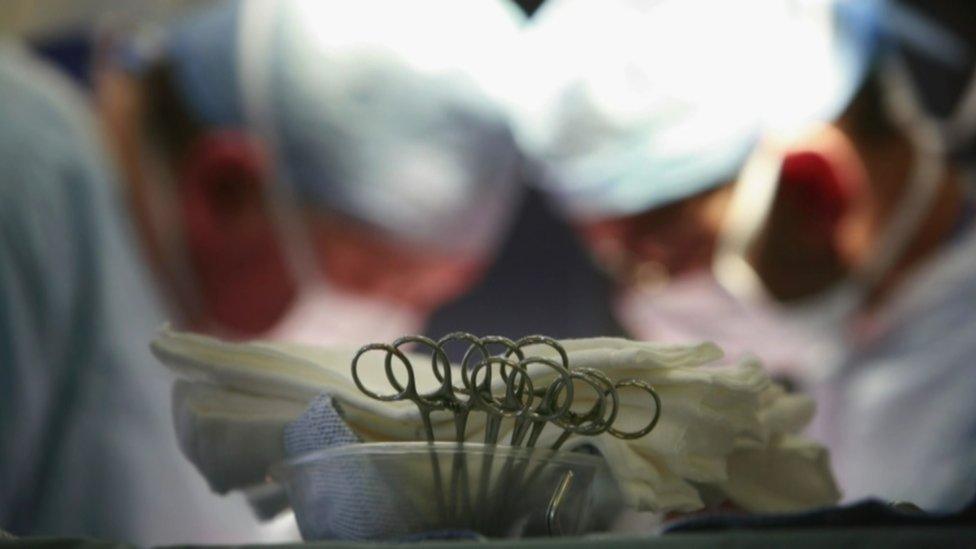Vaginal mesh: No compensation decision 'desperately unfair'
- Published
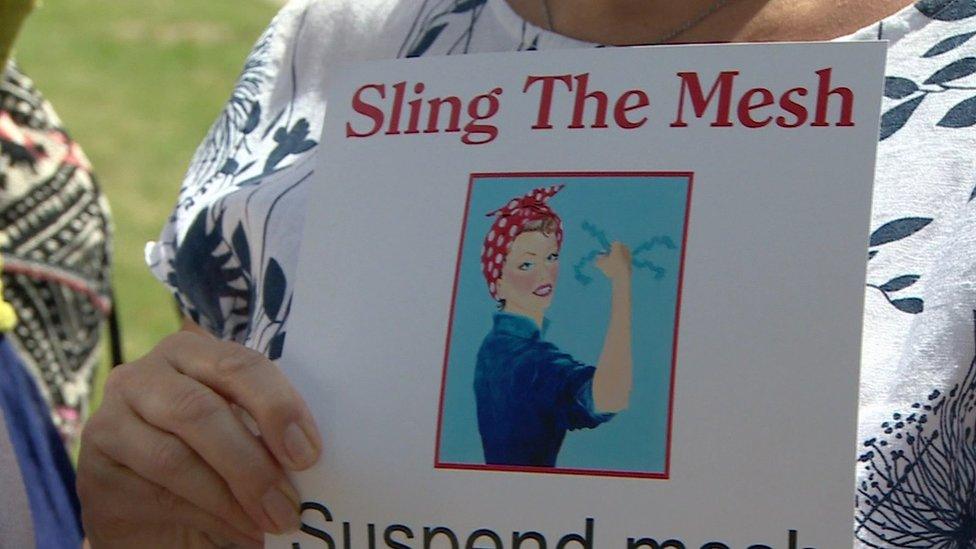
A national campaign group was launched to raise awareness of the potential risks of the surgery
A decision by the UK government not to provide financial compensation to women affected by vaginal mesh complications has been described as "disgraceful" by a Northern Ireland campaign group.
Sling the Mesh NI told BBC News NI the move was "desperately unfair".
No-one was warned of the potential risks of a lifetime of "irreparable harm" caused by the mesh, it said.
The decision not to provide financial redress was announced at Westminster last month.
It was revealed during the last sitting of Parliament before it broke up for summer.
The government said it had no plans to establish an independent redress agency and that its priority was to make medicines and devices safer.
Speaking last year, Yvonne McIntosh said she had been in pain "for so many years" due to a vaginal mesh
Mesh implants have been used to treat conditions such as incontinence and prolapse in women, usually after childbirth.
An independent UK review into three different treatments - Primodos, sodium valproate and pelvic mesh - affecting hundreds of thousands of women and babies was published last year.
The Cumberlege review, titled First Do No Harm, concluded that many lives had been ruined because officials failed to hear women's concerns.
More than 700 women and their families shared "harrowing" details about their experiences.
Among its conclusions it said that "arrogant attitudes left women traumatised, intimidated and confused".
Jackie Harvey from Sling the Mesh NI said the absence of compensation left many women feeling let down.
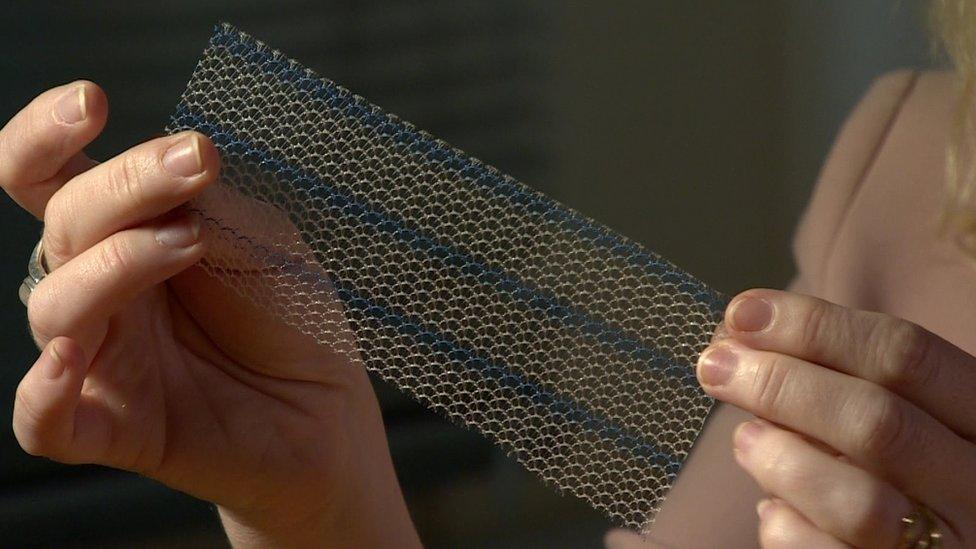
The mesh is made of polypropolene and surgeons routinely use it in hernia repair
"After Baroness Cumberlege published her review we felt vindicated and that our voices had been heard," she said.
"But not getting financial redress is disappointing.
"Many women are having to pick up the pieces themselves and pay privately for surgery to remove these devices.
"It's expensive - the whole thing is disgraceful."
Sling the Mesh wants an audit of hernia mesh patients in Northern Ireland to gauge the number of women who are asking for medical assistance.
Related topics
- Published8 July 2020
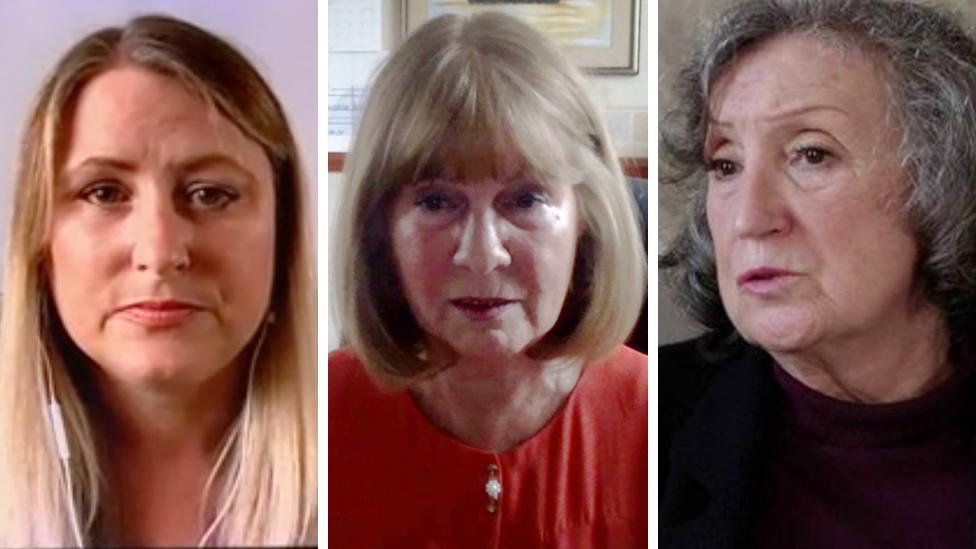
- Published8 July 2020

- Published5 April 2019
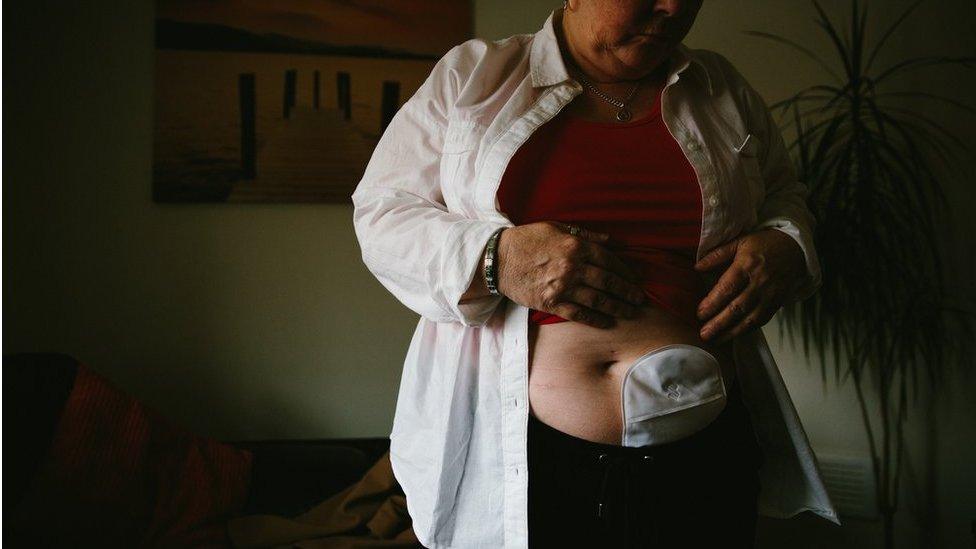
- Published26 June 2017
